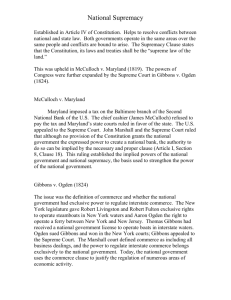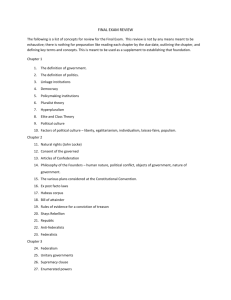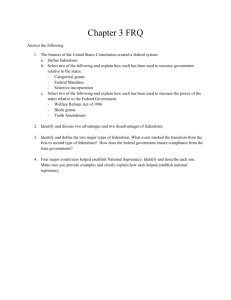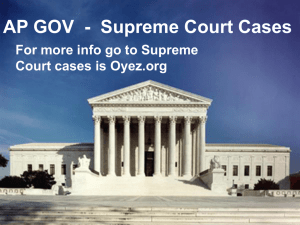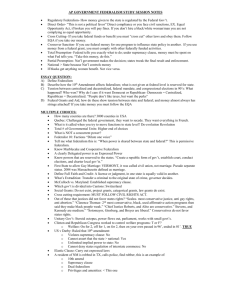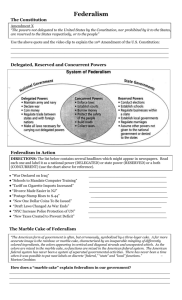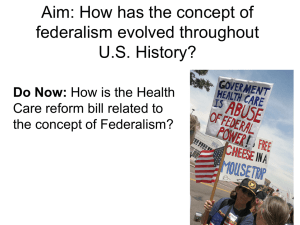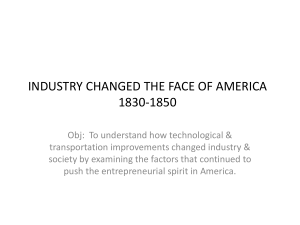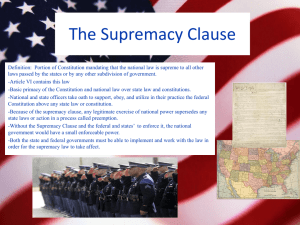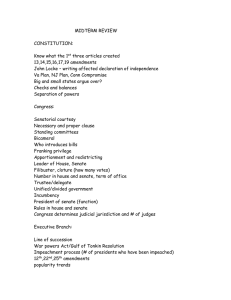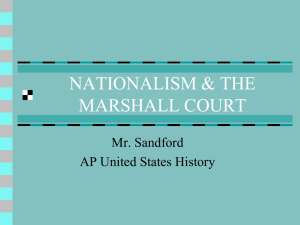File
advertisement
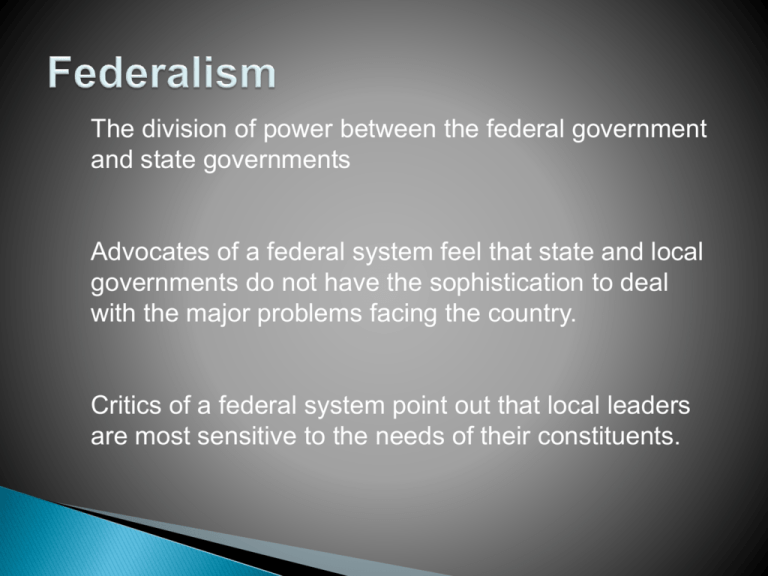
The division of power between the federal government and state governments Advocates of a federal system feel that state and local governments do not have the sophistication to deal with the major problems facing the country. Critics of a federal system point out that local leaders are most sensitive to the needs of their constituents. Unitary Governments like Great Britain and France commonly take away power once given to the local governments Confederations like the early USA and post wall Russia Confederation of States can only survive a few years before a hierarchy takes form causing a break-a-way of states to weak independence. There is a distinctive line drawn between what is in control of the central government and what local governments are concerned with. The Federalist Papers were all about explaining Federalism. No. 9 explains how the individual states join together to make a larger one. No. 14 stated that it should be remembered that it is not the job of the national government to make all of the rules for every person, but that the local governments would be better at that. Anti Federalists tried prove that a central government would be unable to recognize the needs and interests of local governments. McCulloch v Maryland – you remember this as the state of Maryland wanted to tax the National Bank on the money it was making for the USA. The Supreme Court’s response was to include that since the Bank was established by Congress (elasticity) to regulate the amount of money in circulation (necessary and proper clause) its protection by the constitution would be supreme, thus the supremacy clause is in effect. Gibbons v Ogden – Gibbons license to ferry people and cargo on the Hudson River was received from Congress, thus Ogden could not monopolize the trade on the Hudson River (Supremacy Clause) Existed from 1800 through the Civil War Civil War was fought to preserve the federal system of government. The Circle Theory of Dual Federalism To declare war To coin money Immigration To sign treaties To appoint ambassadors To interpret laws Interstate commerce To Tax Create courts Create laws for general welfare To pass laws Health Education Police Marriage Garbage Voting requirements Powers to federal government based on Articles I,II, III, IV, VI Shared based on 10th Amendment Powers for the states based on Article IV and 10th Amendment Post Civil War – with the Federal Government working independently of the state governments. (forcing its will in a manner of speaking. Examples 13th , 14th, and 15th Amendments passed against the wishes of many states. South answered back with separate but equal to counteract any gains made by the minority opinions of the state. Depression Era Legislation to create jobs to end the suffering during the time. Government Programs such as the CCC brought jobs to the cities under the guidance of the Federal Government. Greater cooperation between the federal and local governments. The National Government would provide the money and state governments would administer the programs. Developed during the Republican Era 1970 – 1990 to allow states to accept some of the Marble Cake moneys but under certain conditions plus they would have to develop their own programs. Some conditions: • Follow the conditions or threat of criminal law or civil penalty • Keep the money toward working for a specific program • Agree to NEW federal rules or laws (mandatory speed limits to save gas mileage, set state standards to that of the nation. (clean air acts) Slice up the Marble Cake into two major areas Categorical grants – Aid for a specific item (minimum wage laws), lunch programs, areas that impact families Block Grants – Aid with less strings attached such as welfare reform, training for jobs
